1803
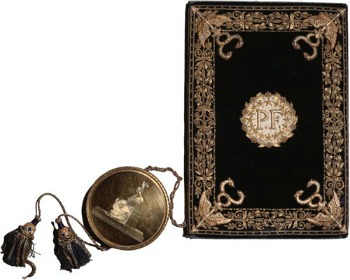
The United States acquired vast western territories as part of the Louisiana Purchase, including the future state of North Dakota.
1861
Congress created the Dakota Territory, which consisted of the present-day states of North Dakota and South Dakota and most of Montana and Wyoming.
1889
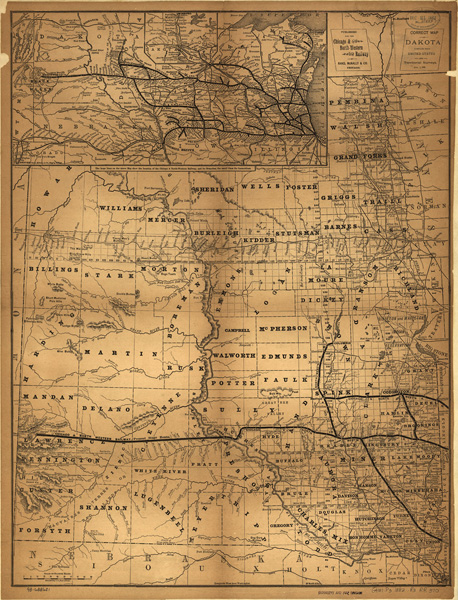
President Grover Cleveland signed legislation authorizing North Dakota, South Dakota, Montana, and Washington to be organized as states.
1889
President Benjamin Harrison signed the formal proclamation admitting North Dakota as the 39th state in the Union.
1889

Lyman Casey of Jamestown and Gilbert A. Pierce of Fargo presented their credentials and took the oath of office as North Dakota's first senators. The senators then drew lots to determine their class assignments. Casey drew Class 1, with a term to expire March 3, 1893. Pierce drew Class 3, with a term to expire March 3, 1891.
1893

Senate Republicans called for an investigation of Senator William Roach of Larimore, a newly elected Democrat, after newspaper accounts accused him of having once embezzled funds while working as a bank teller. The Senate declined to investigate the charge.
1897

Henry Clay Hansbrough of Devils Lake became chairman of the Senate Committee on Public Lands (today's Committee on Energy and Natural Resources), serving until 1908.
1901

Porter J. McCumber of Wahpeton became chairman of the Senate Committee on Manufactures (today's Committee on Commerce, Science, and Transportation), serving until 1903.
1903
Senator Porter J. McCumber became chairman of the Committee on Pensions (now the Committee on Health, Education, Labor, and Pensions), serving until 1913.
1908
Senator Henry Clay Hansbrough became chairman of the Committee on Agriculture and Forestry (now the Committee on Agriculture, Nutrition, and Forestry), serving until 1909.
1910

Senator Fountain L. Thompson, who had just been appointed a senator in December 1909, unexpectedly resigned for reasons of ill-health. Senator Porter J. McCumber announced that a man seated in the rear of the chamber, William E. Purcell of Wahpeton, held a certificate of appointment as Thompson's successor. Surprised senators complained that they had heard nothing of his appointment until then but permitted him to take the oath as a senator.
1911
Former senator Henry Clay Hansbrough published a novel, The Second Amendment (Minneapolis: The Hudson Publishing Company), set in the U.S. Senate and involving the formation of an "Altrucratic Party."
1914
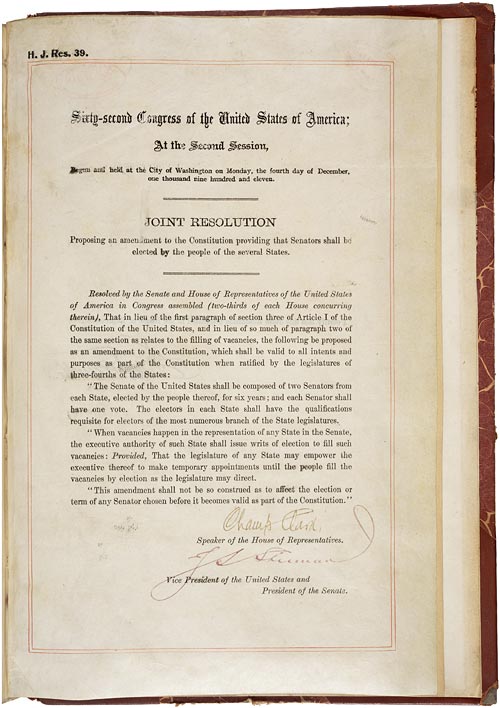
Asle J. Gronna of Lakota became the North Dakota's first directly elected senator under the terms of the Seventeenth Amendment that had passed the year before.
1919

Senator Asle J. Gronna became chairman of the Committee on Agriculture and Forestry (now the Committee on Agriculture, Nutrition, and Forestry), serving until 1921.
1921
Senator Porter J. McCumber engaged in a tempestuous debate with Senator James A. Reed, a Missouri Democrat, over a soldiers' bonus bill. The debate concluded with McCumber offering to settle their differences "outside." The following day's Congressional Record deleted most of the angry exchange.
1922
Senator Porter J. McCumber became chairman of the Committee on Finance, serving until 1923.
1922
President Coolidge signed into law the Fordney-McCumber tariff, sponsored by Senator Porter J. McCumber, which significantly raised tariff rates, reflecting a post-World War I shift toward isolationism.
1925
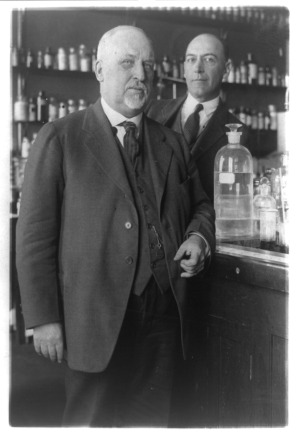
Senate Republicans announced that they would deny seniority and committee chairmanships to Senator Edwin Ladd of Fargo and other senators who had bolted from the Republican Party to endorse Robert F. La Follette's Progressive Party presidential campaign in 1924.
1925

Senator Edwin Ladd died before regaining seniority that his party conference had removed; other penalized senators had their seniority reinstated when Congress convened in December.
1926

The Senate voted to seat Gerald P. Nye of Cooperstown, who had been appointed to fill the vacancy created by Senator Ladd's death, despite the unfavorable report by the Committee on Privileges and Elections.
1927
Senator Gerald P. Nye became chairman of the Committee on Public Lands and Surveys (now the Committee on Energy and Natural Resources), serving until 1933.
1934

President Franklin D. Roosevelt signed the Frazier-Lempke Farm Bankruptcy Act, sponsored by North Dakota senator Lynn J. Frazier of Hoople and representative William Lemke of Fargo, designed to prevent farm foreclosures. In 1935 the Supreme Court declared the act unconstitutional in the case of Louisville Joint Stock Land Bank v. Radford.
1934
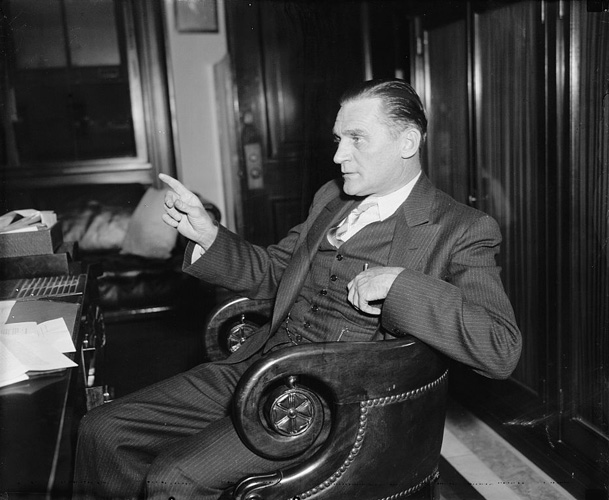
The Special Committee on Investigations of the Munitions Industry began hearings, giving its chairman, Senator Gerald P. Nye, national attention. The committee accused arms manufacturers of being "merchants of death" that induced the United States to enter World War I. Nye's investigation led to neutrality legislation designed to keep the United States out of another European war.
1935
In response to the Supreme Court's striking down the original law, Congress passed a new Frazier-Lemke bill that established a three-year moratorium on farm mortgage foreclosures.
1941

The Senate seated William "Wild Bill" Langer of Bismarck without prejudice after receiving a petition from residents of North Dakota charging him with corruption. After a year's investigation, the Senate Committee on Privileges and Elections recommended against him, but on March 27, 1942, the Senate voted 30 to 52 not to deny him his seat.
1945

North Dakota farmer Milton R. Young of Berlin took the oath as a senator, having been appointed to fill the vacancy caused by the death of Senator John Moses of Hazen. Young spent more than 35 years in the Senate, the longest service of any North Dakota senator.
1946
Senator Milton R. Young was elected Republican Conference secretary, serving in that post until 1971, the longest-serving conference secretary of either party.
1950
Senator William Langer collapsed in the Chamber during an all-night session of the Senate dealing with President Truman's veto of a Communist registration bill. He later recovered.
1958
Due to age and ill health, Senator William R. Langer was unable to return to North Dakota to campaign for reelection and relied on mailings instead. He won with 57 percent of the vote.
1959
Funeral services were held for the late senator William Langer in the Senate Chamber.
1963
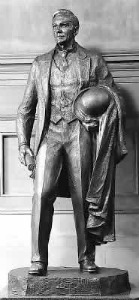
A bronze statue of John Burke, former governor and secretary of the treasury under Woodrow Wilson, was unveiled in the Capitol as North Dakota's first contribution to the National Statuary Hall Collection.
1964
Former senator Gerald P. Nye returned to the Senate as a staff member of the Special Committee on Aging (1964-1968).
1980
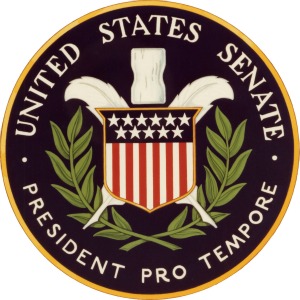
Shortly before Milton Young retired, the Senate elected him president pro tempore as a tribute to his years of service.
1983

Senator Mark Andrews of Mapleton became chairman of the Senate Select Committee on Indian Affairs.
1987

Senator Quentin Burdick of Fargo became chairman of the Committee on Environment and Public Works.
1992

Senator Quentin Burdick died after serving 32 years in the Senate, the second-longest of any North Dakota senator. His widow Jocelyn Burdick was appointed to succeed him, becoming the state's first woman senator. She was not a candidate for reelection.
1998

Senator Byron Dorgan was elected co-chairman of the Democratic Policy Committee. He became chairman in 2000 and served until his retirement in 2011.
2001

Senator Kent Conrad became chairman of the Committee on the Budget, serving until 2003 and again from 2007 to the present.
2003
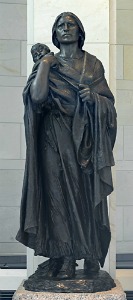
North Dakota honored Sakakawea with a statue in the Capitol as the state's second contribution to the National Statuary Hall Collection.
2007
Senator Byron Dorgan became chairman of the Committee on Indian Affairs, serving until 2011.
2012

Heidi Heitkamp of Mandan became the first woman elected to represent North Dakota in the United States Senate.
2015
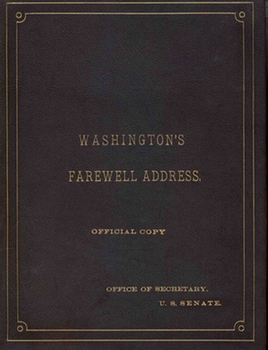
Senator John Hoeven of Bismarck delivered George Washington's Farewell Address on the floor of the Senate, a tradition dating to 1862.
2017

Senator John Hoeven became chairman of the Committee on Indian Affairs, a position he held until 2021.